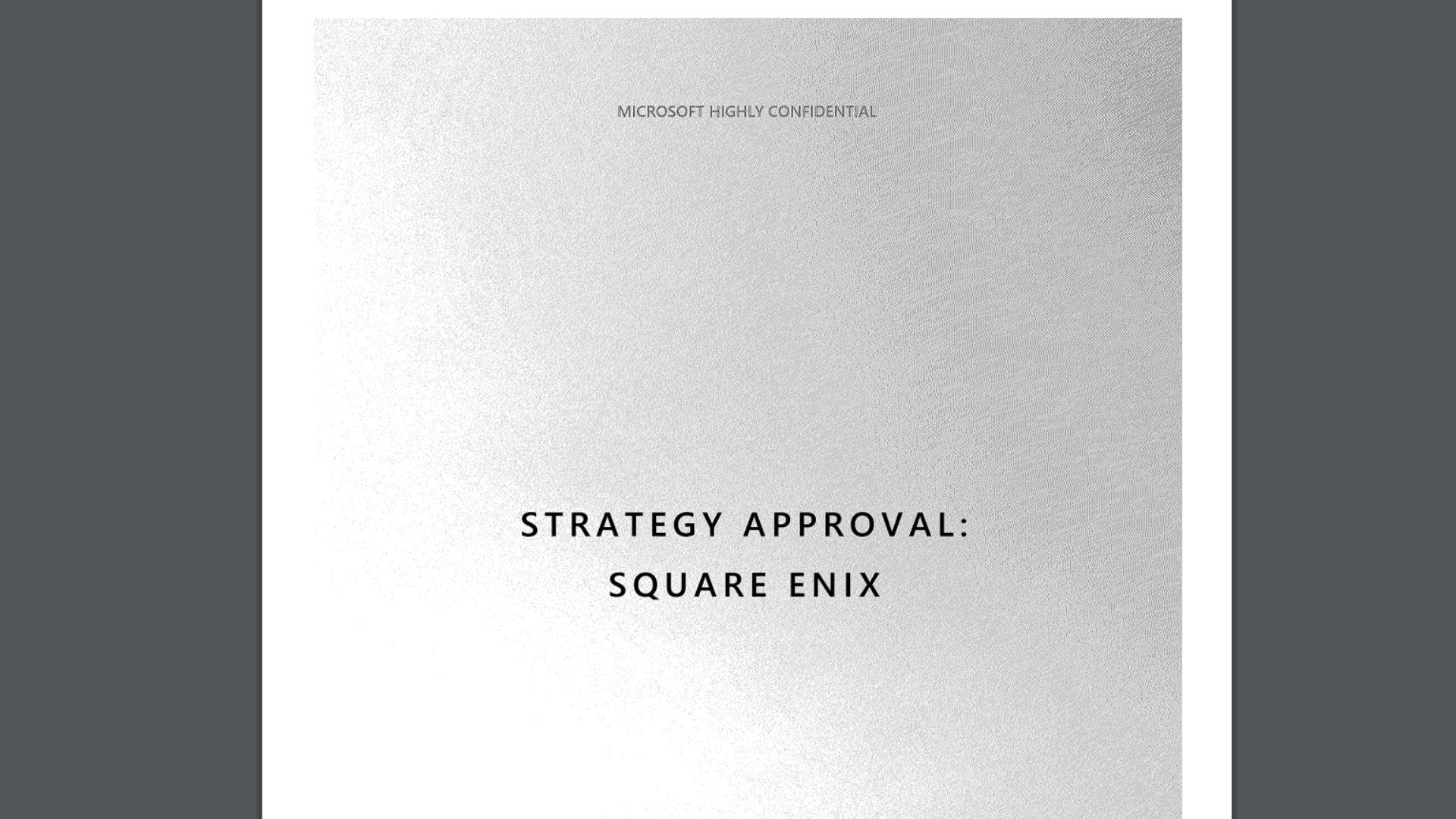Final Fantasy 16 could have been released as a Microsoft game, according to internal documents released as part of the FTC v. Microsoft hearings. The company behind Xbox considered acquiring Square Enix, a publisher best known for its JRPGs like Final Fantasy 16, along with other huge names in the gaming industry like Sega. With a variety of reasons behind the proposed acquisition, from a more significant presence in Asia to the growth of the Xbox Game Pass, the court files detail what Microsoft had planned.
One of Microsoft’s primary motivations behind looking to purchase Square Enix was to help Xbox Game Pass sales. The document details this, stating, “An acquisition of Square Enix would provide valuable content assets that could accelerate the growth of Xbox Game Pass and drive success for Project Scarlett.” Project Scarlett was Microsoft’s codename for its Xbox Series S and X.
Square Enix’s biggest franchises are then mentioned as “blockbuster successes” as Microsoft describes how acquiring the Japanese company “would help differentiate our platform’s key content offerings, and help drive adoption of Xbox Game Pass and Scarlett.” The document also discusses Square Enix’s investments in other studios and how they “produce complementary franchises (e.g. Kingdom Hearts, Deus Ex) with devoted global fan bases.”

All of this, coupled with Final Fantasy’s publisher having an extensive game library and back catalog, leads Microsoft to write that the acquisition could “provide Xbox Game Pass additional catalog depth to improve subscriber retention and broader genre coverage to attract new subscribers.”
The document also gets specific detailing the sale numbers of Square Enix’s core franchises. Final Fantasy, Dragon Quest, and Tomb Raider are described as “collectively selling nearly 300 million lifetime units.” Microsoft then goes on to write, “All three of these franchises launched on console with subsequent extensions to PC and/or mobile, and remain popular amongst the core console audience.”
The company also stated that owning Square Enix could help bolster “future mobile-exclusive Game Pass offerings.” The document also details how combining Microsoft’s mobile-native portfolio with Square Enix’s own “robust” one “could potentially help us create a mobile-native Xbox Game Pass SKU.”
